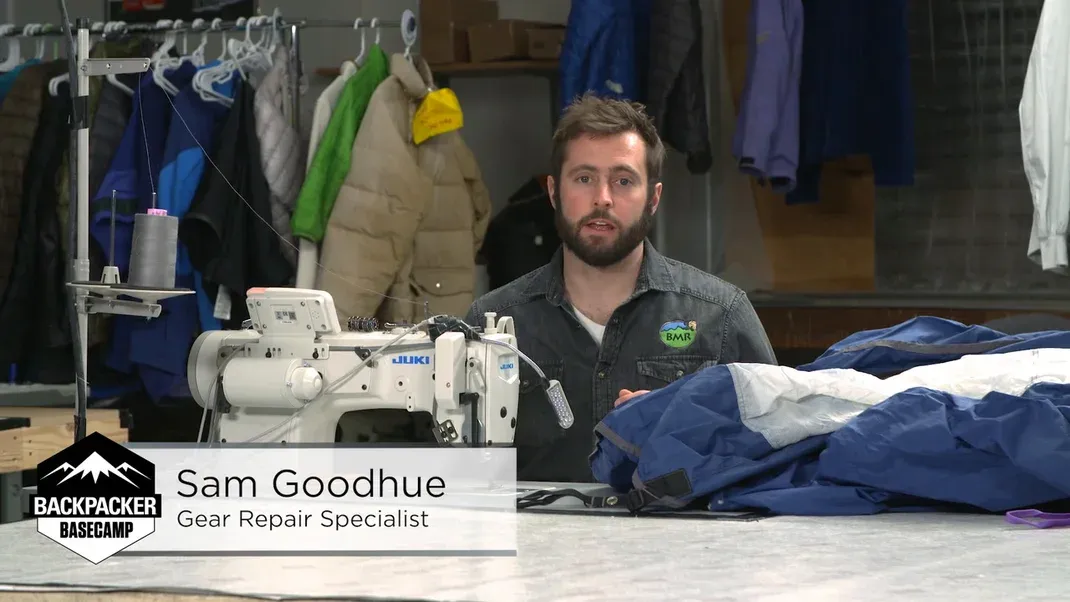5 Easy Swaps You Can Make to Be More Eco-Friendly On The Trail
1. Reusable water bottle: Instead of using single-use plastic bottles, invest in a durable, reusable water bottle to reduce plastic waste on the trail. 2. Biodegradable soap: Opt for biodegradable soap to minimize harm to the environment when washing dishes or yourself while camping. 3. Cloth napkins: Ditch paper napkins and bring along cloth napkins that can be washed and reused, reducing paper waste. 4. Solar-powered lantern: Switch to a solar-powered lantern instead of battery-operated ones to decrease the use of disposable batteries. 5. Pack it out: Practice Leave No Trace principles by packing out all trash, including food scraps, to minimize your impact on the environment.

When you're out on the trail, it's important to be mindful of your impact on the environment. Making small changes to reduce your ecological footprint can make a big difference in preserving the natural beauty of the wilderness. Here are five easy swaps you can make to be more eco-friendly on the trail.
1. Reusable Water Bottles Instead of Single-Use Plastic
One of the easiest and most impactful changes you can make on the trail is to switch from single-use plastic water bottles to a reusable water bottle. Single-use plastic water bottles are a major source of pollution in the environment, and they can take hundreds of years to decompose. By using a reusable water bottle, you can significantly reduce the amount of plastic waste you generate while hiking.
There are many options for reusable water bottles, including stainless steel, glass, and BPA-free plastic. Look for a durable, lightweight bottle that is easy to carry and easy to clean. Many reusable water bottles also come with built-in filters, so you can refill them from natural water sources without worrying about contaminants.
2. Biodegradable Soap Instead of Conventional Soap
When you're on the trail, it's important to practice Leave No Trace principles, which means minimizing your impact on the environment. One way to do this is by using biodegradable soap instead of conventional soap. Conventional soap can contain harmful chemicals that can pollute water sources and harm aquatic life. Biodegradable soap, on the other hand, is formulated to break down naturally in the environment, so it won't leave behind any harmful residues.
Look for biodegradable soaps that are made from natural ingredients and free from synthetic fragrances and dyes. Many outdoor and camping stores carry biodegradable soaps specifically designed for use in wilderness areas. Using biodegradable soap is a simple yet effective way to minimize your impact on the trail.
3. Reusable Food Containers Instead of Disposable Packaging
Another easy swap you can make to be more eco-friendly on the trail is to use reusable food containers instead of disposable packaging. Single-use plastic bags, wrappers, and containers are a major source of litter in the wilderness, and they can take hundreds of years to decompose. By using reusable food containers, you can reduce the amount of waste you generate while hiking and help keep the trail clean.
There are many options for reusable food containers, including lightweight, durable containers made from materials like silicone, stainless steel, and BPA-free plastic. Look for containers that are easy to pack and easy to clean, and that are designed to keep your food fresh and secure. Using reusable food containers is a simple yet effective way to reduce your ecological footprint on the trail.
4. Solar-Powered Lanterns Instead of Disposable Batteries
When you're camping or hiking, it's important to have reliable lighting for safety and convenience. Many outdoor enthusiasts rely on disposable batteries to power their lanterns and flashlights, but these batteries can be harmful to the environment if not disposed of properly. Instead of using disposable batteries, consider using solar-powered lanterns and flashlights.
Solar-powered lanterns and flashlights are powered by rechargeable batteries that are recharged by the sun. This means you can use them over and over again without generating any waste. Look for solar-powered lights that are lightweight, durable, and easy to use, and that can provide reliable illumination for your outdoor adventures. Using solar-powered lanterns and flashlights is a simple yet effective way to reduce your impact on the trail.
5. Cloth Bandanas Instead of Disposable Tissues
Finally, consider swapping out disposable tissues for cloth bandanas on the trail. Disposable tissues are a common source of litter in the wilderness, and they can take a long time to decompose. Cloth bandanas, on the other hand, are reusable and can be washed and used again and again. They can be used for everything from wiping sweat from your brow to cleaning up spills, and they can easily be washed and dried on the trail.
Look for lightweight, quick-drying cloth bandanas that are easy to pack and easy to clean. Consider getting a few different colors so you can use them for different purposes and keep them organized. Using cloth bandanas is a simple yet effective way to reduce your ecological footprint on the trail.
In conclusion, making small changes to be more eco-friendly on the trail can have a big impact on preserving the natural beauty of the wilderness. By swapping single-use plastic water bottles for reusable water bottles, using biodegradable soap, using reusable food containers, using solar-powered lanterns, and using cloth bandanas, you can reduce your ecological footprint and help keep the trail clean for future generations. These easy swaps are simple yet effective ways to minimize your impact on the environment while enjoying the great outdoors.




